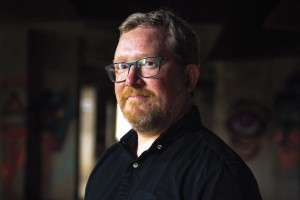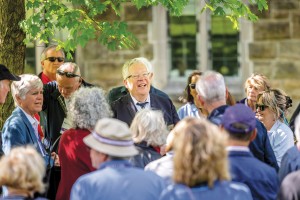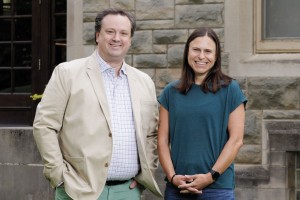The Kenyon Alumni Starter Kit
24 ways to reconnect, stay engaged and make the most of your Kenyon community.
Read The StoryMeet the alumni entrepreneurs, makers and innovators reshaping the food business.
Story by Kirsten Reach ’08
A James Beard Award–winning wine program in Austin. A mutual aid kitchen in the Bronx. Impeccable pastries, cowboy caviar, adaptogenic cocoa, sourdough bagels, direct-to-consumer cheese and Korean shaved ice. Across the country, these Kenyon alumni are reimagining the way food is made and shared — with community and a focus on local foods at the center.
CO-OWNER OF BIRDIE’S, AUSTIN, TEXAS
birdiesaustin.com | @arjavezekiel
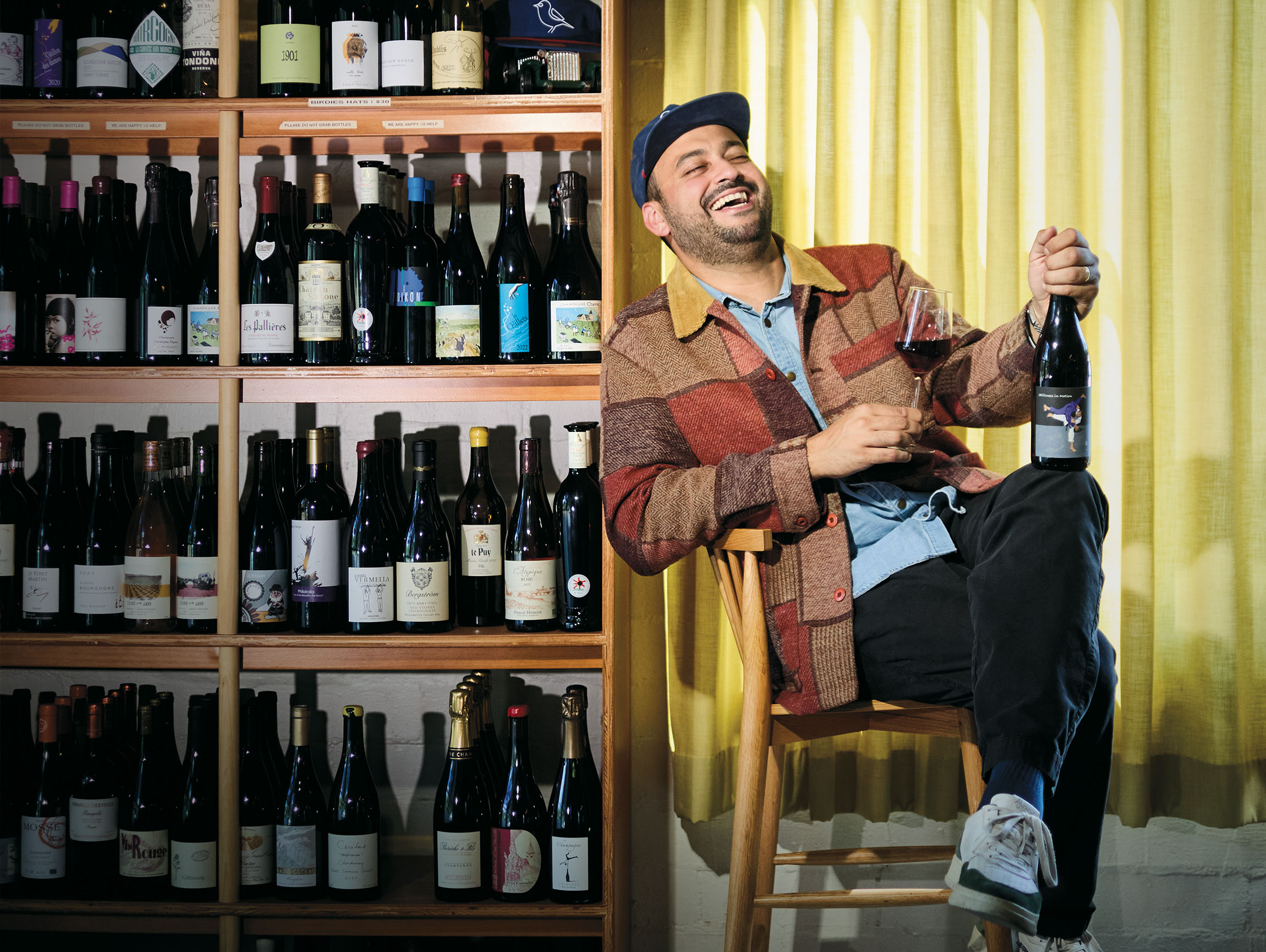
Photography by Jody Horton (above) and Mackenzie Smith Kelley (inset)
Arjav Ezekiel ’10 is the co-owner of Birdie’s, an Austin restaurant that blends fine dining with counter service and an employee-first philosophy. Since Ezekiel opened the restaurant in 2021 with his wife, chef Tracy Malechek-Ezekiel, Birdie’s has been the recipient of many prestigious honors. Most recently, Ezekiel and Malechek-Ezekiel were named to the 2025 TIME100 Next list, recognizing their leadership in reshaping the restaurant industry with an equitable, people-centered approach.
A cold email opened doors: Shortly after graduating from Kenyon, Ezekiel sat down to write an email to restaurateur Danny Meyer and his COO, asking for a job. It was a long shot — the political science major had no formal hospitality training — but he knew how to make the case. “Learning how to write convincingly opened a lot of doors for me,” he said. “It was maybe the most important tool I walked away with from Kenyon.”
The first door was an interview, followed by a job offer at Meyer’s new restaurant in the Whitney Museum: Untitled. There, Ezekiel gained invaluable experience in fine dining, made life-long friends and met his wife. Both later worked at Gramercy Tavern before leaving New York for Austin, where they opened Birdie’s in 2021.

Reimagining fine dining: While working together at Gramercy Tavern, Ezekiel and Malechek-Ezekiel dreamed about opening their own dining establishment — one that prioritized their lives outside of the demanding pace of the New York City restaurant scene. “Restaurant ownership was always a pressure cooker,” Ezekiel explained. “We wanted to build a new model that valued sustainability and balance more than anything else — the kind of restaurant we wanted to work at, with five working days a week and holidays with our families.”
When they initially approached investors with their unconventional plan, Ezekiel drew on skills honed in Kenyon seminars. “It was there I learned not to react when others questioned my ideas,” he said, “and that it was okay to say, ‘I don’t know. I’ll find out.’”
Putting people first: Birdie’s innovative counter-service fine-dining model keeps costs low while maintaining high quality. “People line up to order at a counter, but once they sit down they can expect the food and hospitality they’d get at a high-end restaurant, but without the frills — like the white tablecloths, the captain, the back waiter,” Ezekiel said. “We’ve kept it as lean as possible, and the money we save from that labor, we reinvest in the rest of our team.”
That reinvestment philosophy has allowed them to offer what Ezekiel considers revolutionary benefits in the restaurant industry: health insurance, subsidized mental-health therapy and about five weeks of planned and paid vacation.
The employee-first approach at Birdie’s is on the vanguard of broader changes sweeping the restaurant industry as workers demand better conditions and customers become more conscious of workplace practices.
Growing with grace: Birdie’s quickly became one of the country’s most buzzed-about restaurants, in part for its selection of low-intervention, or natural wines. Everything changed when the restaurant appeared in the New York Times’ 2021 list of “50 places in America we’re most excited about right now.” “That moment was the inflection point, when Birdie’s became more than we had ever hoped for and imagined,” Ezekiel recalled.
The couple had designed a neighborhood restaurant, but overnight, Birdie’s became a destination. In navigating this growth, Ezekiel credits another Kenyon influence: “Professor of Political Science Pamela Camerra-Rowe was a really important figure during my time at Kenyon, and I’ve tried to model my approach to feedback and growing people on our team the same way she approached coaching me — tough, direct, honest, but always on my side and full of love.”
As the restaurant’s popularity grew, the couple adapted. They streamlined operations to prevent long waits between courses, and Malechek-Ezekiel adjusted recipes for efficiency. “We learned to accept the gift” of national media coverage, Ezekiel said, scaling rapidly to meet demand while staying true to their values.
Looking ahead, Ezekiel eschews the pressure to expand for expansion’s sake. “If something good happens, people always tell you you need to go out and do more,” he observed. “We do our best to stay grounded and stay grateful for what we have. We just turned 4 years old. By any measure we’re still a young restaurant; we’ve just grown out of our toddler phase.”
A career-making award: In addition to the New York Times list, Birdie’s was named Food & Wine’s Restaurant of the Year (2023), and has received two James Beard honors: a nomination for Malechek-Ezekiel (2024) and a win for Ezekiel himself — the inaugural award for Outstanding Beverage Service Professional.
One of the first to send congratulations after Ezekiel’s win was Meyer himself. “He talked about how proud he was of me, and we’ve kind of built a relationship,” Ezekiel said. “But his investment in me began with that first email.”
“The fun thing is the entire menu changes every month,” Ezekiel said. “I always say, ‘Get the fish, and any vegetable Tracy’s cooking.’”
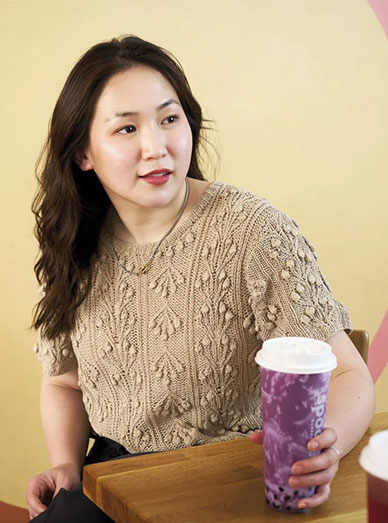
OWNER OF SPOONFUL DESSERTS, ST. LOUIS, MISSOURI
spoonfuldesserts.com | @spoonful_dessert_cafe
In 2020, Monica Lee ’16 was rising in the ranks as a public relations executive in Beijing, a career that had her traveling the world on a regular basis. She first fell in love with travel at Kenyon, while studying abroad in Spain and China, and she moved to Beijing for work after graduation. While she was on vacation in the U.S., COVID-19 broke out in China, and she suddenly found herself stranded in her hometown of St. Louis — and struggling to satisfy her sweet tooth. In her travels, Lee always sought out Korean-style cafés where she could enjoy bingsu, the national dessert of Korea, made from finely shaved frozen milk, or “snow,” and sweet toppings. She was disappointed not to find any in St. Louis, so she set out to change that.
Finding her sweet spot: Five years later, Lee is still in St. Louis, and the proud owner of Spoonful Desserts, the city’s first Korean dessert café, which offers taiyaki (fish-shaped cakes), boba, milk tea, fruit tea, espresso drinks and, of course, bingsu.
During the pandemic, she found temporary work managing her cousin’s business, Joo Joo Restaurant & Karaoke. There, she perfected her recipe for bingsu and added it to the menu, essentially market-testing her own product. According to a profile of Lee on TheSTL.com, the bingsu “was such a hit that customers lingered, and the restaurant had trouble turning over tables in time.”
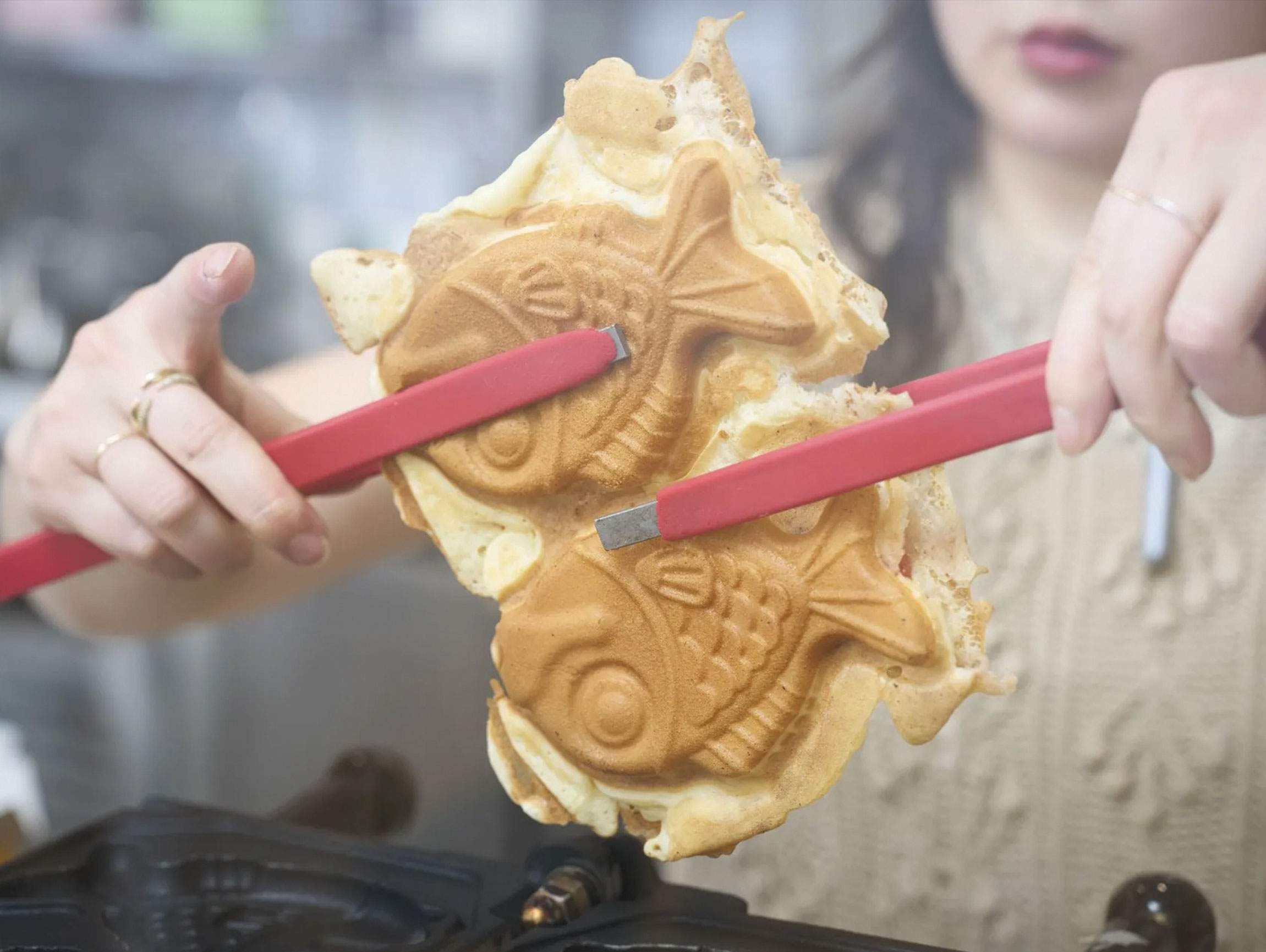
Photography by Jennifer Steinberg
Making connections: Lee’s gift for hospitality flourished at Kenyon, where she organized ramen nights in the McBride kitchen her freshman year, and, by her senior year, hosted frequent brunches with her Acland roommates. A modern languages and literatures major, Lee said her years abroad in China shaped her approach to business. “The Kenyon network is incredibly strong and present even in Beijing,” she recalled. When she returned home, she drew on the language skills and consulting experience she’d gained overseas “to help propel Spoonful to where it is today.” Lee still sources many products from China thanks to her professional connections there.
A rising star: St. Louis Magazine describes her cookies-and-cream bingsu (and a playful Fruity Pebbles version) as “guaranteed crowd pleasers,” and notes that “the matcha bingsu, topped with sweet red bean paste, is complex, sophisticated, and not to be missed.”
In 2023, Lee was named one of Feast’s Rising Stars, and within its first year, Spoonful expanded to a second location in Edwardsville, Illinois. “When I see people enjoying my food and having a good time in the space I created,” she told Feast magazine, “that feels like success to me.”
Lee recommends the Tira-Miss You bingsu: “It took me a while to find the right balance of tiramisu flavors without actually putting a slice of tiramisu on the snow.”
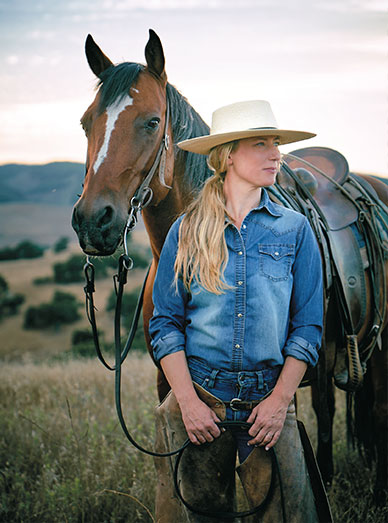
CATTLE RANCHER, COOKBOOK AUTHOR, COOKING SHOW HOST, RANCHO SAN JULIAN, CALIFORNIA
theranchtable.com | @elizabethpoett
Elizabeth Poett ’03 grew up on Rancho San Julian, a 14,000-acre cattle ranch on California’s Central Coast that her family has owned since 1837. A seventh-generation rancher, she is committed to preserving the land, raising food humanely and bringing people together over meals. In 2018, she launched “The Ranch Table,” hosting cooking classes, special meals and private events at the ranch’s historic adobe. Three years later, she signed on to star in “Ranch to Table” on HBO and the Magnolia Network, where she shares recipes and glimpses of everyday ranch life with a national audience.
A growing guest list: For as long as she can remember, Poett loved hosting. “I always loved having people over,” she said. At Kenyon, she often hosted gatherings for her friends and rugby teammates in Hanna and Old Kenyon.
These days, Poett hosts gatherings in a renovated 100-year-old barn, recently reshaped and repainted, and people fly in from all over the country to enjoy a meal together and learn skills. It’s an extension of the community she built for 16 years selling her family’s beef at farmers markets — an interest she first cultivated as a student, stopping by the local farmers markets for pies and cookies.
Anyone can purchase reservations to attend these curated culinary experiences — with themes like “End of Summer Barbecue” and “Friendsgiving in the Barn” — on the Ranch Table’s website, and they often sell out well in advance.
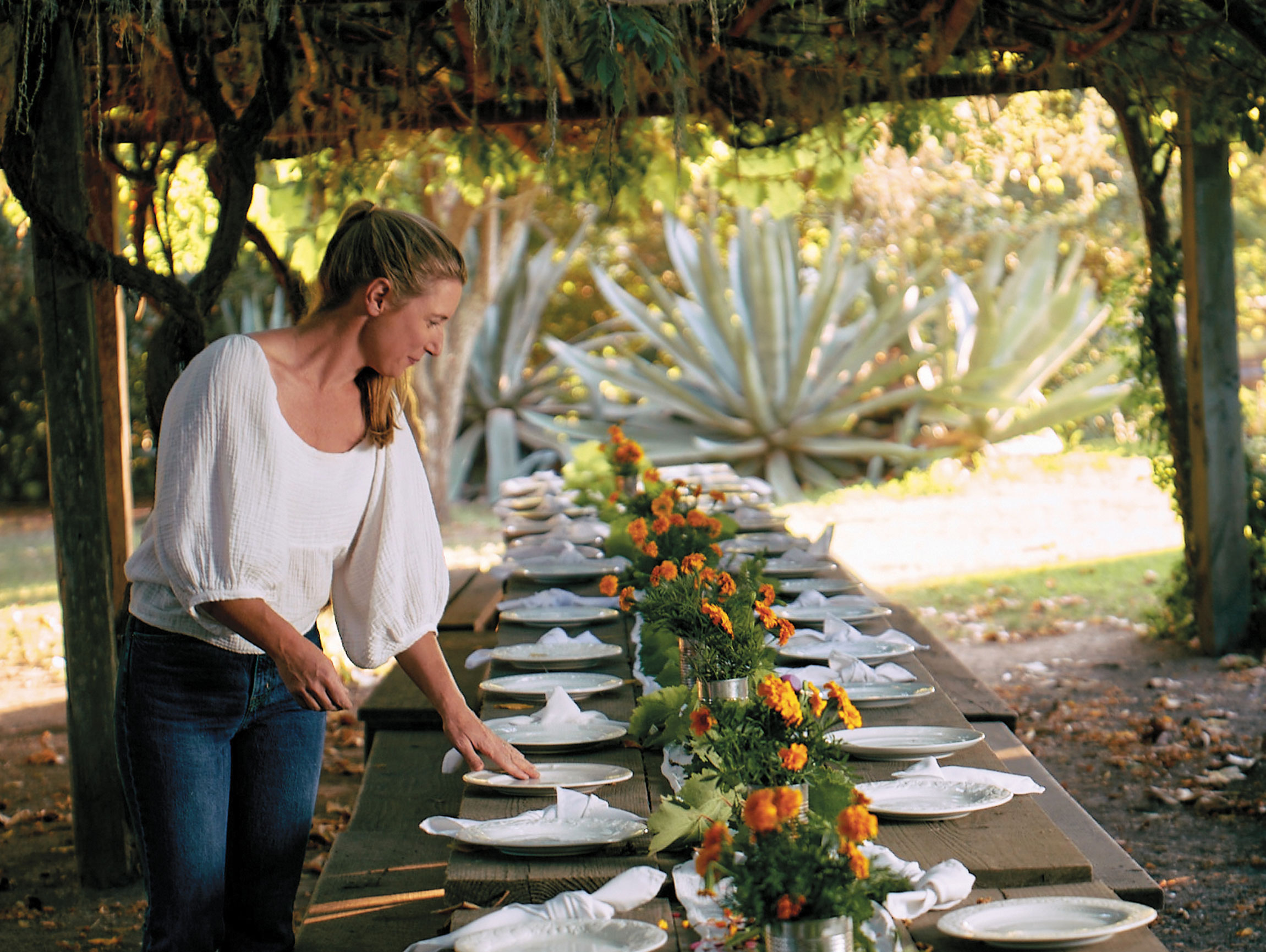
Photography courtesy of Elizabeth Poett
Community at the table: For Poett, food is more than sustenance; it is the glue that holds families and communities together. “Food is number one — a really good meal can fix most problems” she said.
Through “Ranch to Table” and Poett’s 2023 bestselling cookbook, “The Ranch Table: Recipes from a Year of Harvests, Celebrations, and Family Dinners on a Historic California Ranch,” she’s been able to reach a national audience and introduce them to the rhythms of ranch life.
Poett’s website sells branded apparel, home goods and pantry items, and features free recipes for everything from her favorite avocado toast to “Cowboy Caviar” and horchata.
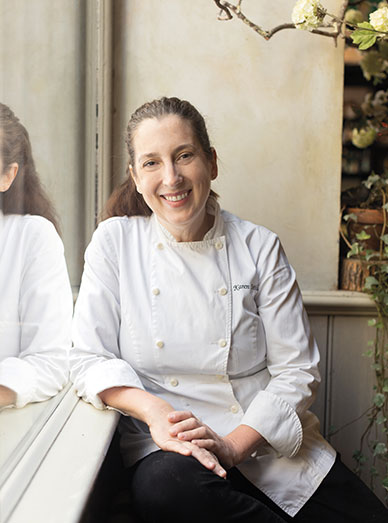
EXECUTIVE PASTRY CHEF, GRAMERCY TAVERN, NEW YORK CITY
gramercytavern.com | @kdemasco
As executive pastry chef at Gramercy Tavern, Karen DeMasco ’91 is known for dreaming up simple, seasonal creations — think apricot tart with lemon verbena ice cream, candied pistachios and vanilla bean, or toffee date cake with poached pear and crème fraîche. A James Beard Award-winner and author of “The Craft of Baking,” DeMasco has inspired a generation of chefs with her creative and seasonal market-driven approach.
From publishing to pastries: After college, DeMasco moved to New York with a group of Kenyon friends. An English major, she landed a job in the production editorial department at Simon & Schuster, and nurtured her other passion — food — by taking cooking classes at night and working catering gigs on the side.
But it was a front-page story in New York Magazine about Gramercy Tavern that inspired her to make the leap from publishing to working full-time with pastries. “Claudia Fleming (the legendary chef at Gramercy at the time) was making pastries that were different from everyone else in the city,” she said. “Back then, desserts used to be from an alien planet: bombes and mousses, not really focusing on seasonality or freshness. (Fleming) was using herbs and all the market produce, and making everything fresh every day.”
DeMasco eventually joined Gramercy Tavern and worked under Fleming, then continued to build her career at some of the country’s most celebrated restaurants.
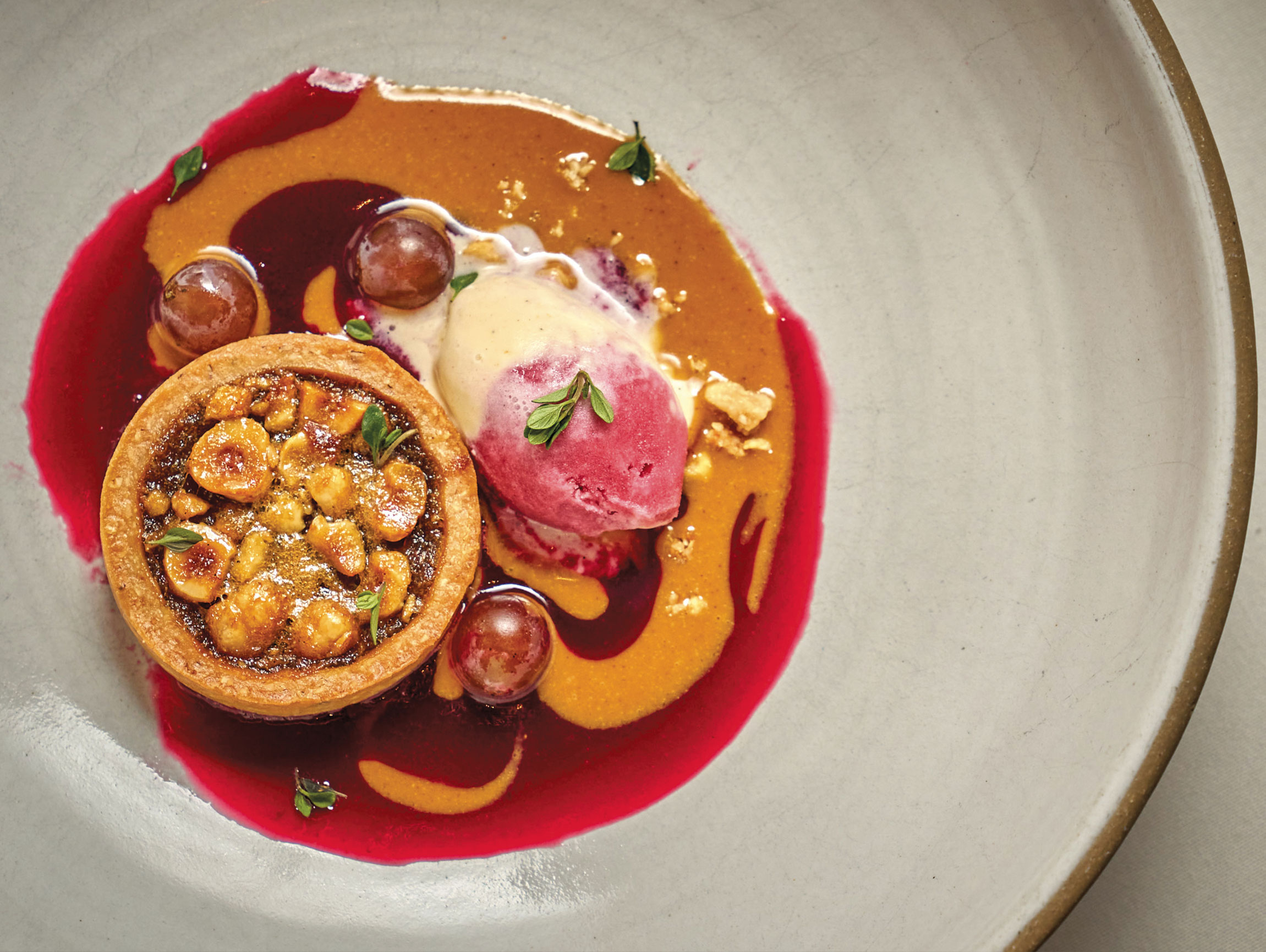
Photography by Natalie Black (inset) and USHG (above)
An original influencer: In 2005, DeMasco won the James Beard Award for Outstanding Pastry Chef and was recognized for her simple, elegant and seasonal desserts. Four years later, she published “The Craft of Baking: Cakes, Cookies, & Other Sweets.”
New York Magazine critic Adam Platt called DeMasco’s desserts “impeccable” and “the best in town,” and dubbed her “the original dessert goddess at Craft,” where she worked with chef Tom Colicchio. And Beth Kracklauer ’92, food and drinks editor at The Wall Street Journal, described her as “one of the most influential pastry chefs of the last 20 years. I see her influence everywhere, especially in new American restaurants: perfectly executed, utterly unpretentious, and it really lets the ingredients speak for themselves.”
Now back at Gramercy Tavern as executive pastry chef, DeMasco continues to innovate. The kitchen recently added a grain mill, and she’s been experimenting with whole wheat puff pastry. While the menu changes daily, her approach remains constant: desserts that celebrate the best flavors of the season.
DeMasco said the Gramercy menu changes too often to recommend one item forever. “The best thing is to choose whatever looks freshest at the market.”
LA MORADA MUTUAL AID KITCHEN, SOUTH BRONX, NEW YORK
instagram.com/lamoradanyc | @lamoradanyc
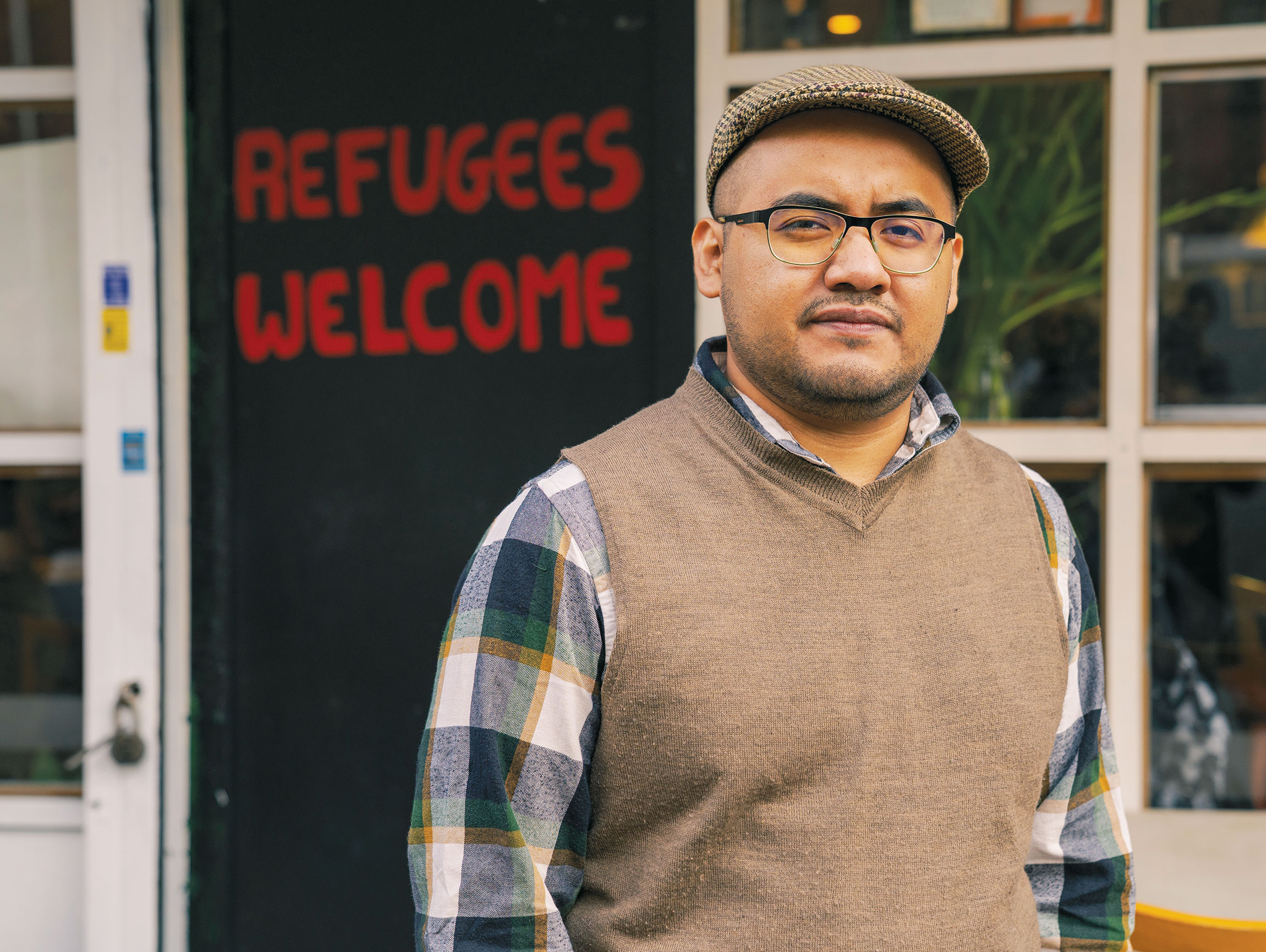
Photography by Cesarin Mateo (above) and courtesy of Marco Saavedra (inset)
Marco Saavedra ’11 grew up on traditional Oaxacan food in Oaxaca, Mexico, and today his family’s restaurant, La Morada Mutual Aid Kitchen, is both a culinary hotspot and a community life-line. Known for its celebrated molés (traditional sauces) and flavors deeply rooted in Indigenous Mexican history, the South Bronx restaurant has been profiled by The New Yorker, The New York Times, Michelin and more.
Reconnecting with history: At Kenyon, Saavedra studied food systems, interned at Fox Hollow Farm, helped install raised garden beds at Wiggin Street School and joined environmental groups like ECO and PEAS. In his senior year, he took a sustainable agriculture course taught by Professor Emeritus of Sociology Howard Sacks — part of the Food for Thought initiative — that left a lasting mark. “I just wanted to reconnect with the earth,” he said.
Serving the community: Saavedra now works at his family’s restaurant, La Morada. In a neighborhood with little access to fresh produce, they knew the community would be especially vulnerable during the pandemic; at the height of COVID-19, La Morada offered 500 free meals a day. “Sometimes the smallest things help you connect,” he said. At the restaurant, he uses French, which he studied in high school and at Kenyon, to speak to Muslim immigrants as they break bread together. They’re housing insecure, and he’s “an Indigenous Oaxacan man, just trying to share a meal today, help with Metrocards, whatever paperwork they need to get.” French, which he first studied because of his interest in the Impressionists (he is also an oil painter), was also the language he used with Haitian detainees while working as an organizer for the National Immigrant Youth Alliance.
“Food is one of the easiest connectors, whether it’s a first date or someone just got released from a detention center and needs to find a way to feed their family,” Saavedra said.
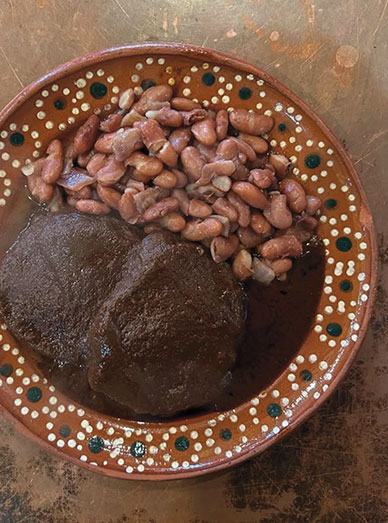
Meeting the moment: Today, Oaxacan food is enjoying a moment of global recognition, and La Morada has been featured in publications like Serious Eats and New York Magazine. “Once you start, you want to try everything,” Nicolas Niarchos wrote in The New Yorker.
Oaxaca has become “very trendy, and you want to be careful with that,” Saavedra said. “To become a destination, written up for who we are, for my family’s tradition — it’s bittersweet, because there’s so much exploitation in the food system. But at the same time, to be recognized for what you do, it’s very beautiful.”
In 2024, La Morada expanded its mission with the opening of H.earth, a community garden and cultural sanctuary in the South Bronx, created in partnership with the design collective Territorial Empathy. Built around a communal hearth and sustained by solar power and rainwater collection, the space offers neighbors a place to gather, share food and carry forward Indigenous traditions, while also addressing food insecurity through mutual aid.
Saavedra said you can’t go wrong with any of the molès on the menu.
FANTZYE BAGELS, KINGSTON, NEW YORK
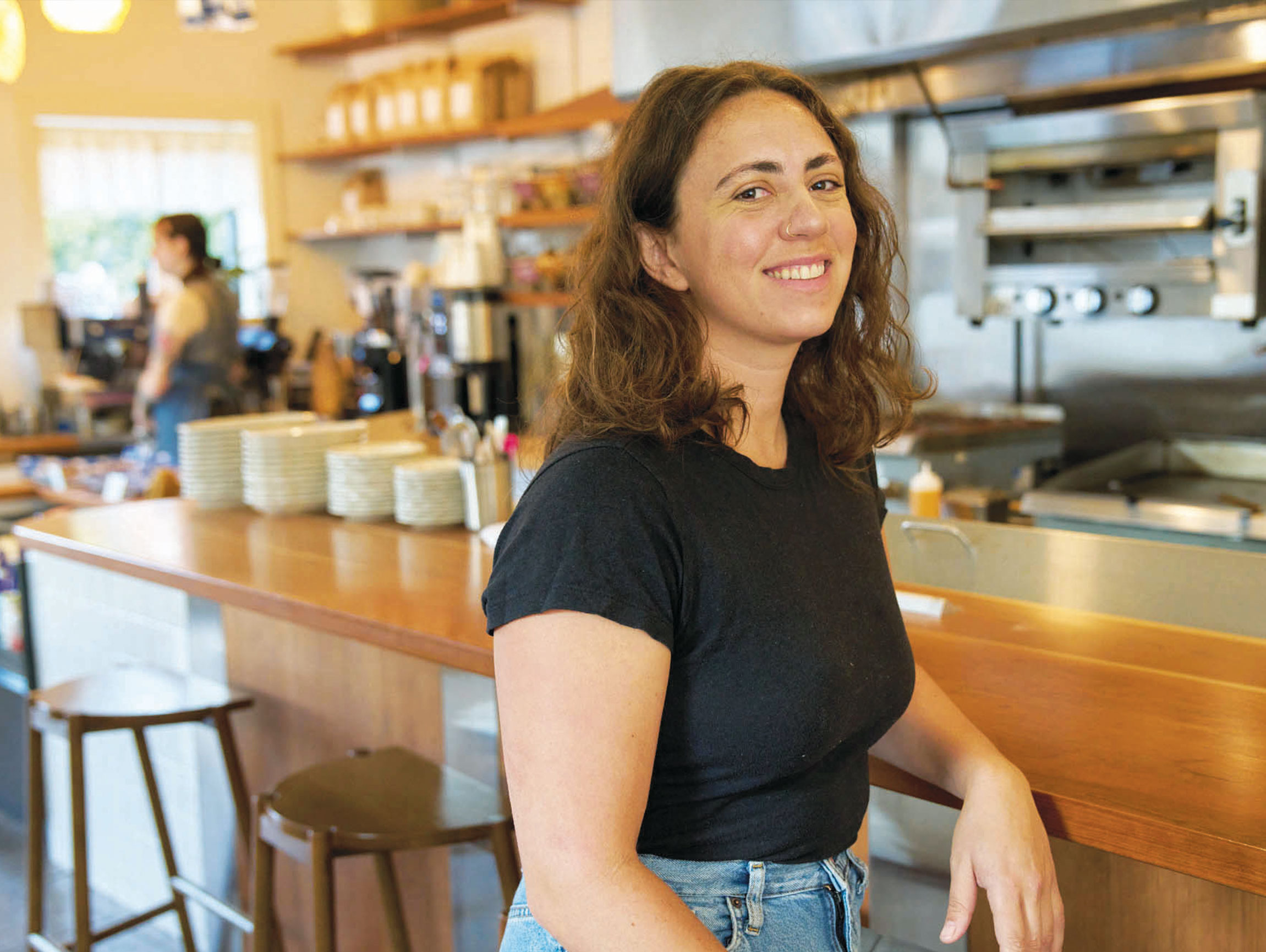
Photography by David McIntyre (above) and Kate Sears (inset)
Elana Carlson ’11 is the chef and founder behind Fantzye Bagels, a small-batch sourdough bagel shop in Kingston, New York. Her bagels are hand-shaped in-house — naturally fermented without commercial yeast — and made from ingredients sourced from the surrounding Hudson Valley community. She named her shop Fantzye, a play on the Yiddish word for “fancy,” in homage to her Jewish grandmother, and Fantzye’s fanciful menu features seasonal “schmears,” lots of toppings and “a lil’ pickle plate.”
From the (basketball) court to the kitchen: At Kenyon, Carlson was a member of the women’s basketball team, and she credits sports with teaching her communication, team-building and resilience — skills she relies on while running her business. “It used to be balancing sports with academics,” she said. Now it’s knowing that when she needs to start work at 4 a.m., but it’s late at night and the fish is still in the smoker, she can “rally and get things done.”
Since opening her business in 2020, Carlson handles “pretty much everything — the newsletter, graphic design, accounting,” she said. She has put her psychology degree to good use in learning how to manage people, give substantive feedback and make hard decisions.
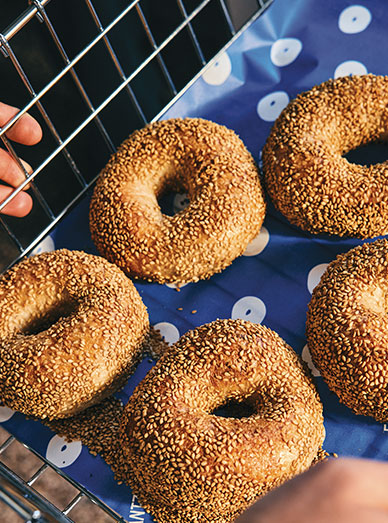
Hands-on experience: Carlson has worked across the food industry — from Food52 to restaurants in Martha’s Vineyard and Los Angeles, where she managed 150 staff at Éliphante. In 2020 on Martha’s Vineyard, she began experimenting with sourdough bagels and launched a pop-up that quickly took off.
When the pandemic hit, Carlson refurbished a trailer on Martha’s Vineyard and sold bagel kits with smoked fish. The venture was successful, but housing on the island was too limited for a permanent shop. Instead, she looked north to the Hudson Valley, where she designed and opened her own store in Kingston. In this tight-knit community, she enjoys sharing resources with neighboring businesses, and she’s experimenting with Tuesday community dinners. “There’s an abundance mentality here that centers the people, the customers and the resources,” she said.
Fantzye’s sourdough bagels rotate seasonally. Try the lox sandwich with house-smoked fish, za’atar bagels with seasonal vegetables and whatever schmear Carlson is testing that week.
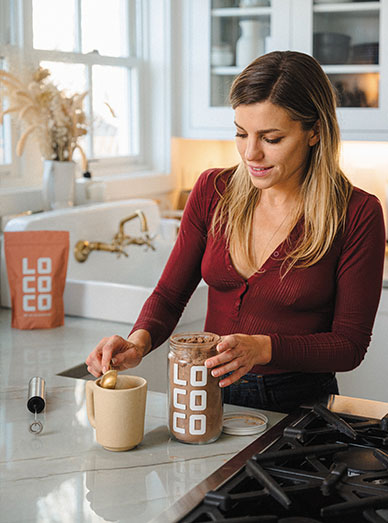
LOCOCO, PARK CITY, UTAH
lococomagic.com | @lococo_magic
After Kenyon, Anna Bloom ’04 moved to Park City, Utah, where she later founded LOCOCO in 2020. She noticed that health-conscious locals and athletic types rarely drank the cocoa served in the ski lodges. The U.S. Olympic team trained in Park City, and visiting skiers were serious athletes who wanted to recharge after hitting the slopes. Enter LOCOCO: the cocoa company Bloom co-founded with a friend, offering a richer, more nutritious take on the classic chocolatey drink.
Cocoa ai funghi: A typical cup of hot cocoa has around 35 grams of sugar, compared with Lococo’s 5 grams. “Cocoa is really good for you if you take out all the sugar,” Bloom explained. Lococo’s blend is vegan, full of adaptogens, and enriched with mushrooms like maitake and lion’s mane, which, according to Bloom, “helps with bringing the body balance.” Like a cocktail, the flavor builds, with cinnamon, ginger, low-glycemic sugars and a spicy kick of cayenne. There’s also coconut milk powder so you can just add water — no milk needed — and still get a satisfying froth.
Bloom majored in English at Kenyon, and her first jobs out of college were in journalism, reporting for MSNBC.com, The New York Times and other news outlets. Her background in digital product design led her to want to create something physical — not just tell a story. For LOCOCO, she designed the formula, the packaging and the brand itself. She paired that skill with business acumen honed in UX and content strategy roles at Cash App, Airbnb and Facebook.
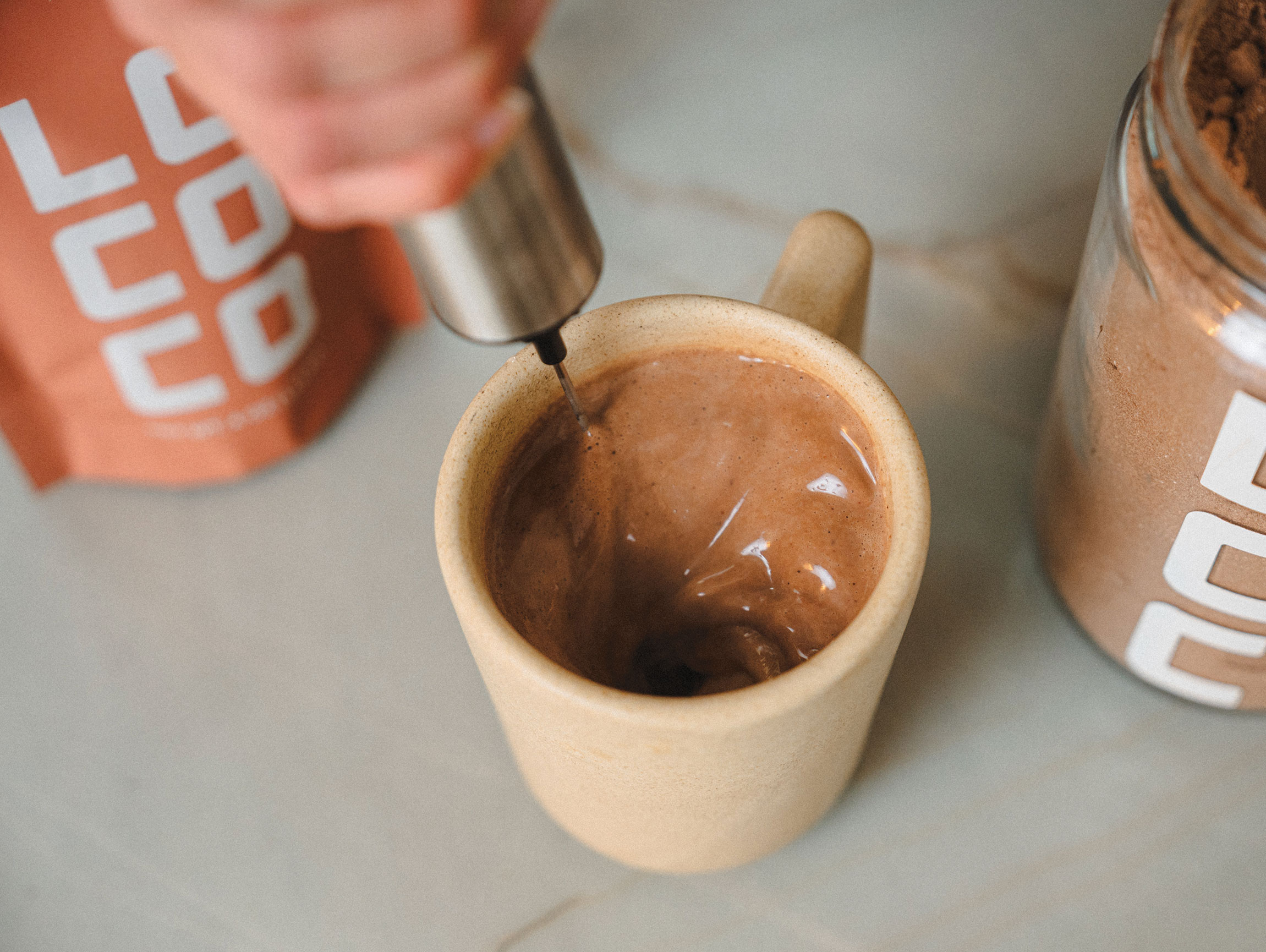
Photography by Austen Diamond Creative
Craft cocoa cocktails: Bloom credits her father, Christopher Bloom ’73, an intellectual property attorney and certified mixologist, with inspiring her to experiment until she found the right recipe. Lococo also makes a tasty addition to a cocktail: Food & Wine named it the “most spikeable” cocoa in 2023, because it has the “oomph and personality” to stand up against spiced rum, whiskey, tequila and more.
At the 2024 Sundance Film Festival, world-renowned mixologist Charles Joly created a Ketel One cocktail featuring LOCOCO as a key ingredient. Between the three lodges at Sundance that year, the company served more than 1,400 cups of LOCOCO to VIPs and attendees.
This fall, LOCOCO released its first new flavor, Lux Vanilla — a functional take on a classic cocoa with rich vanilla notes.
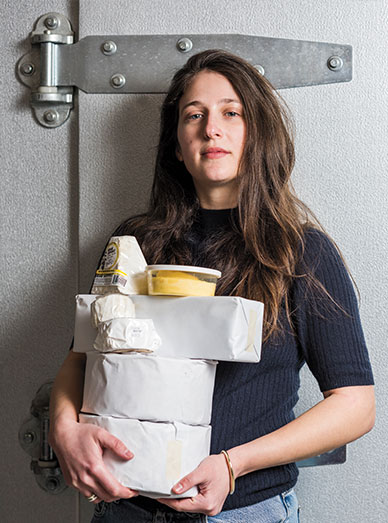
C. HESSE CHEESE, BROOKLYN, NEW YORK
chessecheese.com | @chesse_cheese
Before starting her own wholesale distribution business, C. Hesse Cheese, in 2022, Caroline Hesse ’14 worked for Crown Finish Caves, a cheese-aging facility in Crown Heights, Brooklyn, for nearly six years. While there, she was responsible for getting cheese on the menu at fine-dining establishment Eleven Madison Park, and was featured in the New Yorker’s Talk of the Town. “I was lucky in that most of my clients from Crown were willing to come over with me,” she said of starting her own venture.
Building relationships with customers: Before Crown Finish Caves, Hesse worked at Lucy’s Whey on the Upper West Side, where her favorite part of the job “was absolutely the regular customers,” she said. “Lots of kooky old New York ladies coming in for cheese and chats. I felt like they saw me as one of them (because I am!).” Now that she has her own space in East Williamsburg, she has lunch most days with friends at a catering business called Grand Cook. Together, they’re launching new events to help counterbalance sales lost to tariffs.
From religious studies to cheesemaking: At Kenyon, Hesse was a religious studies major, student manager at the Brown Family Environmental Center and worked with the Kenyon Food Co-op. After graduation, she enrolled in a cheesemaking apprenticeship at Cricket Creek Farms in the Berkshires, where she fell in love with the work. “Recently, I was joking with a friend of mine about how I’ve tricked all of my customers into taking communion with me when we sit down for cheese tastings,” Hesse said. “But truly, a big throughline within many religions is the importance of purpose and service, and I feel that I get to live both virtues out by working with cheese.”
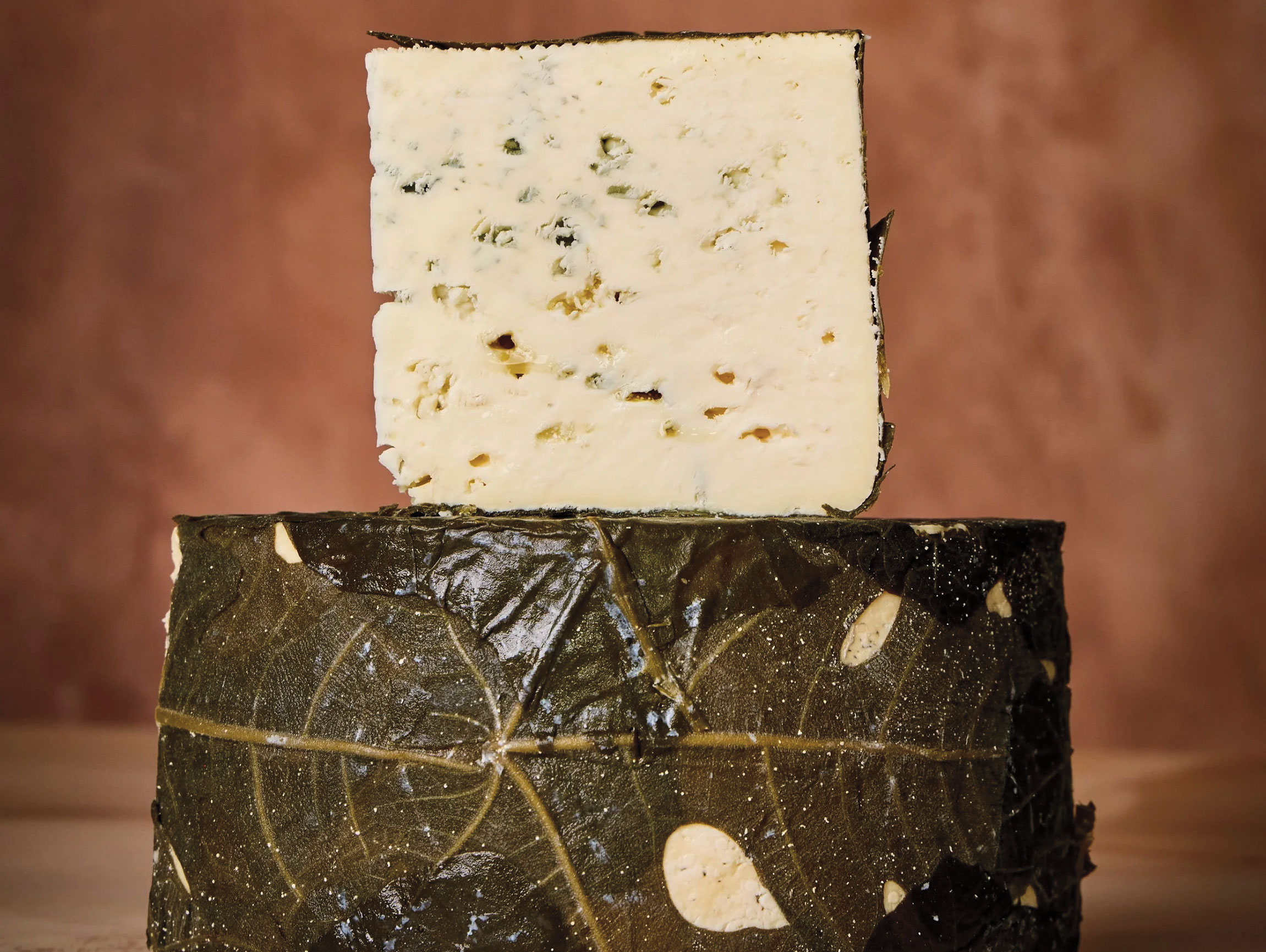
Photography by Valery Rizzo
Cultured growth: Hesse now supplies restaurants and shops across the country with her cheeses. She also hosts private tastings, cheesemaking classes and warehouse “open houses,” allowing customers to come in, taste through the selection and purchase cheese to take home.
Social media stardom: As a child, Hesse disliked how close the letters of her name, when shortened to C. Hesse, looked to the word “cheese.” Now, she owns it. Her witty and approachable TikTok (@chesse_cheese) videos have earned her over 130,000 followers, and they cover everything from cheese tips at Trader Joe’s to brief history lessons, behind-the-scenes looks at small business ownership and satisfying clips of her slicing into giant wheels of cheese.
Hesse recommends Mad River Blue from Von Trapp Creamery in Vermont. “It is a very nutty and chocolatey blue so it’s nice for snacking and dessert.” She also loves the King’s Ransom from Roelli Cheese Haus in Wisconsin. “That’s a perennial favorite and melts so well.”
24 ways to reconnect, stay engaged and make the most of your Kenyon community.
Read The StoryLooking back at the work and legacy of Graham Gund ’63 H’81, who died in June.
Read The Story